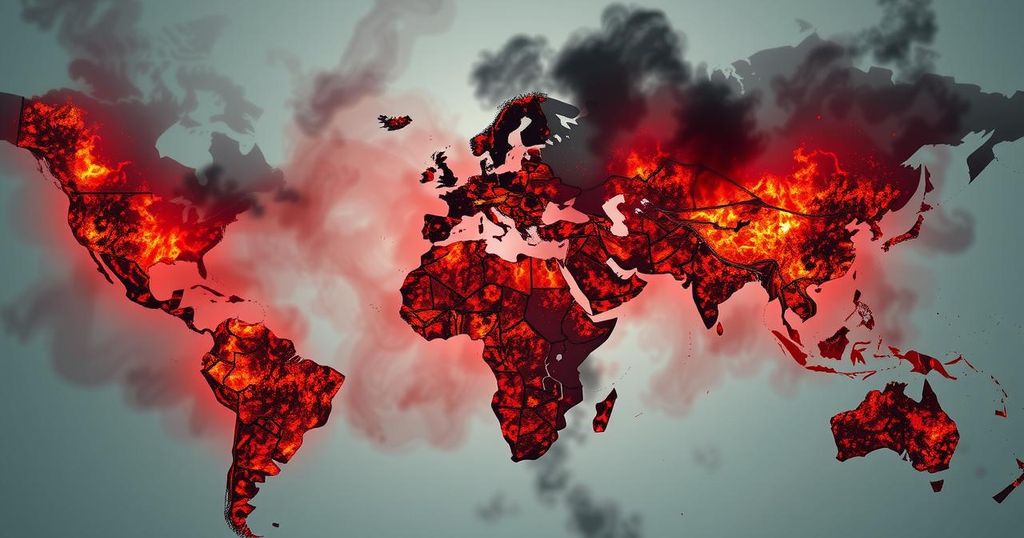The UN reported significant civilian casualties in South Sudan due to growing communal violence. In Syria, the WHO delivered vital medical supplies amid continued humanitarian efforts. Gaza experiences a humanitarian crisis underscored by the recent death of an infant due to cold, amid ongoing conflicts affecting civilian infrastructure and health services.
Recent reports from the United Nations highlight an alarming escalation of violence in South Sudan, where communal strife represents a significant challenge to civilian safety. Human rights assessments from the UN Mission in South Sudan (UNMISS) indicated that between July and September of the previous year, 299 non-combatants were killed, 310 injured, and 151 abducted. The rise in gender-based violence is particularly concerning, with at least 32 reported incidents of sexual violence against women in conflict scenarios. In addition, the ongoing tensions between government forces and the National Salvation Front threaten the welfare of civilians in the Greater Equatoria region. UNMISS’s head, Nicholas Haysom, condemned this violence and urged local leaders to address the root causes of conflict.
In Syria, the WHO facilitated its first humanitarian air charter of the year, delivering over 32 tons of medical supplies to address the needs of 300,000 individuals. Prior to this, essential medical aid was distributed to hospitals in northeastern Syria, indicating a robust international response to the health crisis in the region. UN efforts continue with aid operations linked to the WB and the UNRWA assisting over 3,600 families with food and winter necessities per month, despite dire conditions caused by unexploded ordnance, which resulted in civilian casualties.
In Gaza, the humanitarian situation remains critical as a one-month-old infant recently died from hypothermia, marking the eighth infant death linked to extreme cold. Reports indicate that civilian infrastructure, such as schools used for shelter, is being compromised by ongoing military strikes. Humanitarian access continues to be severely restricted in North Gaza, with calls from WHO for an end to hostilities affecting hospitals.
Authorities are urged to uphold international human rights standards to protect vulnerable populations amidst these humanitarian crises across South Sudan, Syria, and Gaza.
The ongoing conflicts in South Sudan, Syria, and Gaza have led to severe humanitarian crises, necessitating urgent international attention and intervention. In South Sudan, years of civil unrest and ethnic violence have resulted in widespread instability, leading to increasing casualties among civilians. The situation in Syria remains critical following a protracted civil war characterized by significant displacement and destruction of health infrastructure. Meanwhile, in Gaza, continuous military actions have exacerbated the plight of civilians, especially vulnerable populations such as children. The role of organizations like the UN and WHO is crucial in delivering humanitarian aid and advocating for the protection of civilians.
In summary, the recent reports emphasize that communal violence in South Sudan persists as a major threat to civilian safety, while humanitarian efforts in Syria and Gaza face significant obstacles amid ongoing conflicts. International organizations continue to work on the ground to provide essential aid and call for accountability from local authorities. The need for resolution, protection of human rights, and sustainable peace remains imperative as humanitarian conditions worsen in these regions.
Original Source: www.globalissues.org






